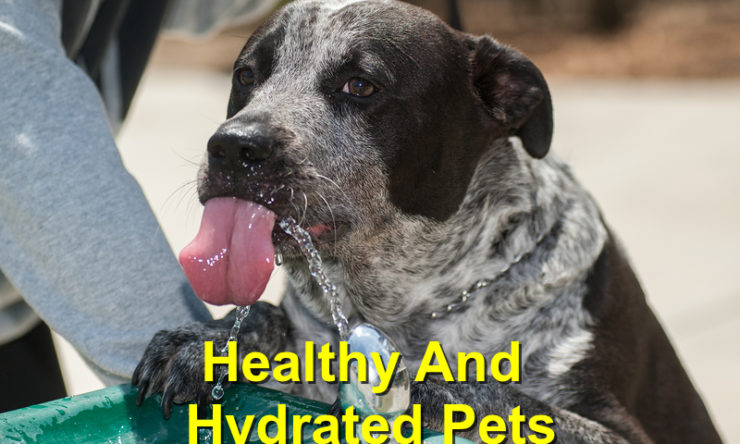Feeding your pet: How to Keep them Healthy and Hydrated
With the warm weather upon us, it seems like a great time to get out and enjoy the sun while bonding outdoors. However, while the swimming, basking and hanging around outdoors may seem ideal for people, pets could have a hard time especially with issues such as heat, allergies, and bugs.
Such a scenario necessitates the need to take safety precautions when it’s hot, whether you are traveling or just at home. With the following preventive care measures, you can get detect future heat problems and ascertain what is necessary to do depending on the condition.
Dehydration signs
- Generally, lethargy is the first sign of something wrong with the dog or cat. Some of the other symptoms frequently include
- Decreased appetite due to the reduction in blood flow to the pet’s digestive tract, slowing down the process
- Elevated breathing and heartbeat as the heart contracts and attempts to increase oxygen to the body tissues
- Skin flexibility also indicates a level of dehydration with less skin flexibility evident from rigid and dry nose membrane and lack of the skin retaining the usual shape.
- Water-seeking behavior is a definite indication of the pet’s need for water, and this can lead to the animal potentially drinking water from unfamiliar places.
What you can do
1. Consistent Supply of Fresh Water
The pet hydration needs should be constant since the average dog or cat is said to need an ounce of water per a pound of body weight each day. It is, therefore, necessary to ensure there are water sources that make cold water available to drink whether if it’s indoors or outdoors during hot weather.
2. Diet
Making sure the pet is fully hydrated would mean focusing on changing the diet to suit more moist foods. Such a scenario would entail feeding the dog or cat rehydrated commercial feeds or home-prepared meals over the typical dry kibble.
3. Vet Visit
At times the heat may become unbearable for the pet, and in dire situations, any fever or health-related ailment would require professional help. You can set up a checkup for the pet whenever you feel the dehydration symptoms are becoming more evident than usual.
Overall, these are simple precautions that could play an essential role in protecting the pets during the warm weather. As a matter of convenience, you can purchase pet insurance to cover your pet in any case of emergency or accident.
Sources: AKCCHF, Animal Awareness, VCA Hospitals





